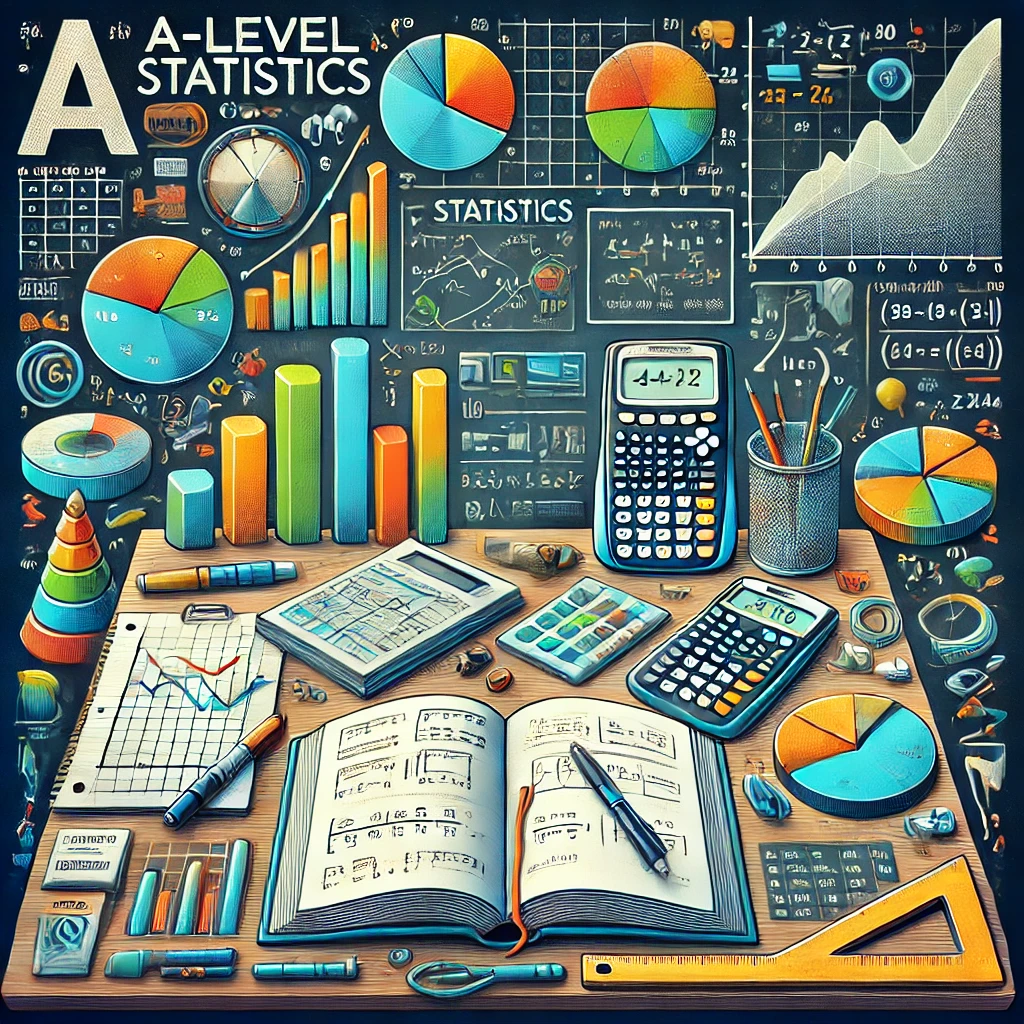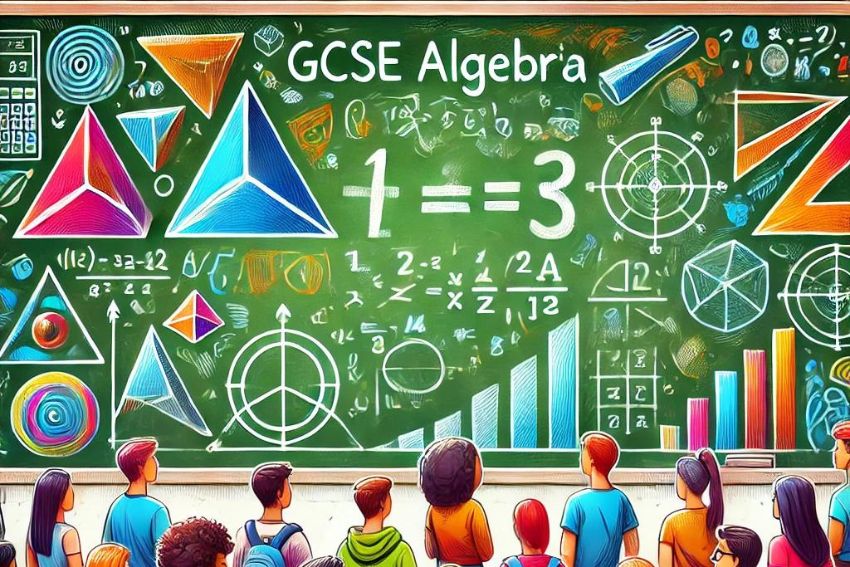Maths Education in the UK – Explained for Parents
Mathematics, often shrouded in apprehension, is a universal language that is integral to our daily life. This fear, termed ‘maths anxiety‘, affects approximately 2 million children in the UK. However, several misconceptions, such as the need for an innate talent or the view of maths as a mere collection of rules and formulas, contribute significantly to this fear.
In reality, mathematics is a creative field fostering critical thinking and problem-solving skills, beneficial beyond academia. It’s crucial to remember that mistakes are not failures but valuable learning opportunities. With a positive approach, maths becomes a journey of discovery and problem-solving, rather than a daunting challenge.
According to The Sutton Trust, high-quality early mathematics education can boost children’s performance in other studies, enhance their earnings, and decrease the likelihood of unemployment. This underscores the essential role of parents in supporting their child’s mathematical development.
Early Years Mathematics
In the Early Years Foundation Stage (EYFS) of the UK National Curriculum, children aged 3 to 5 are introduced to mathematics in a fun and engaging way. This stage is crucial for fostering a love for learning and setting the foundation for more advanced mathematical concepts to be developed in the later years.
Key Topics in EYFS
- Numbers. This forms the cornerstone of early mathematics education. Children are taught to count reliably, understand the concept of ‘more’ or ‘less’, and recognise numerals.
- Shape, Space, and Measures. Here, children begin to explore and understand the world around them through concepts like size, weight, position, distance, and time. They are also introduced to the names of common shapes and can start to categorize objects based on their shape and size.
- Patterns. Recognising and creating patterns helps children develop their logical thinking and prediction skills. This could include simple color patterns or patterns of shapes.
- Sorting and Classifying. Children are encouraged to sort objects based on different attributes, such as color, size, or type. This helps develop their understanding of categories and similarities/differences.
The emphasis during these early years is on experiential learning and discovery, using everyday situations and play-based activities. The goal is not just to teach children about numbers and shapes, but to help them develop a problem-solving mindset and the ability to apply mathematics to real-life situations.
Tips for Parents to Support Early Years Maths Learning

- Incorporate Maths into Daily Life. The best way to introduce children to maths is through everyday experiences. Count objects together, such as the number of apples in a bag or steps up the stairs. Recognize shapes in your environment and discuss their attributes. By embedding mathematics in the context of their daily lives, you help children see the relevance and usefulness of the skills they’re learning.
- Play Games that Involve Maths. Simple games like hopscotch or puzzles can be a fun way to introduce numbers and shapes. Board games can also provide opportunities for counting, pattern recognition, and strategic thinking.
- Use Hands-on Tools. Manipulatives like blocks, beads, or counting bears can be a great way to demonstrate mathematical concepts visually and concretely. These tools can help children understand abstract concepts such as addition and subtraction.
- Read Books that Involve Mathematics. There are many children’s books that subtly teach maths concepts like counting, shapes, or patterns. Reading these books together can be a relaxing and effective way to reinforce what your child is learning.
- Encourage Their Curiosity. Ask open-ended questions to stimulate their thinking, like “How many ways can we arrange these blocks?” or “What do you think will happen if we add one more?” When they encounter a problem, guide them to think it through rather than giving the answer straight away. This encourages them to develop problem-solving skills and a growth mindset.
- Provide a Safe Space for Mistakes. Help your child understand that it’s okay to make mistakes – they are an integral part of learning. When they make an error, use it as a learning opportunity and discuss what they can do differently next time.
- Stay Connected with Their Teachers. Maintain an open line of communication with your child’s Early Years teachers. This will allow you to keep track of what they’re learning, understand their progress, and discover new ways to support them at home.
These tips should serve as a starting point. Every child is unique, and it’s important to adapt your approach to fit your child’s individual learning style and needs. Remember, the goal at this stage isn’t to create a maths prodigy, but to foster a love for learning and set a solid foundation for future mathematical understanding.

Stefan B.
Maths | Spanish Tutor
Student at UNIVERSITY OF WARWICK
£26 Per session
Book Free TrialRecommended Apps/Websites for Early Years Maths:
- CBeebies Numberblocks: This is an educational TV show, app, and website developed by the BBC. The Numberblocks characters help children develop number recognition, counting, and basic arithmetic skills through engaging and interactive episodes.
- Khan Academy Kids: This free app includes interactive lessons in maths, as well as other subjects. The maths section covers a wide range of early years maths concepts through fun activities, games, and stories.
- PBS KIDS Games: PBS KIDS offers a collection of games that help children learn maths and problem-solving skills. The games are based on popular PBS shows like Sesame Street and Daniel Tiger’s Neighborhood.
- Fish School HD: This app introduces children to numbers, shapes, letters, and colours through interactive under-the-sea themed activities.
- Todo Math: Todo Math includes a variety of fun, interactive games that teach early numeracy skills. The app includes daily math practice activities as well as missions to keep learning engaging.
- Tiggly Math: This is an interactive app that combines digital gameplay with physical manipulatives, engaging children in a multisensory learning experience.
- Endless Numbers: In this app, kids learn number recognition, sequences, quantity, numerical patterns, and simple addition with adorable and fun monster characters.
Please remember that while digital resources can be a great tool for reinforcing maths skills, they should be used in moderation and as a part of a balanced educational plan. The screen time for children, especially young ones, should be limited, and the content should always be age-appropriate and safe.
Understanding 11+ Maths
The 11+ Maths curriculum is a step up from the Early Years, and it introduces more advanced concepts, while further developing the foundational skills learned in the previous years. This period is crucial as it is typically when students prepare for the 11+ exams, which are used for grammar school admissions in many parts of the UK.
This curriculum covers a range of topics, including numbers, algebra, ratio, proportion, geometry, and statistics. Some new topics that are added at this level include fractions, decimals, percentages, area and perimeter, angles, algebraic expressions, and data handling, among others.
The 11+ Maths exams assess not only students’ knowledge of these topics but also their problem-solving abilities, logical reasoning, and numerical skills. As such, the focus is not merely on memorising facts or procedures, but on understanding the underlying concepts and applying them in different contexts.
Preparing for the 11+ exams can be challenging due to the breadth and depth of the syllabus. However, with the right approach and support, students can develop a strong understanding of maths and perform well in the exams.
Understanding Maths in Sixth Form: KS3 and KS4 (GCSEs)
KS3
KS3 (Key Stage 3) is the first part of secondary education in the UK, typically covering Years 7 to 9 (ages 11-14). At this level, students continue to build upon the foundations established in the primary years, with the curriculum expanding to incorporate more abstract and complex mathematical concepts. Many students and parents find KS3 maths challenging due to the significant step up from primary school, but with effective learning strategies and consistent practise, students can develop strong mathematical skills during this crucial stage.
The core topics studied during KS3 include:
- Numbers. Extending their understanding of numbers, students work with negative numbers, powers, roots, and standard form.
- Algebra. Introducing algebraic manipulation, formation and simplification of expressions, solving equations and inequalities, and understanding sequences. These early algebra skills build the foundation for the more complex GCSE algebra concepts that students will encounter in KS4.
- Geometry and Measures. This includes the study of angles, shapes, symmetry, area, volume, and transformations.
- Probability and Statistics. Students learn to interpret, analyse and present data, and work with probability.
KS4 – GCSE
Moving into KS4 (Key Stage 4), students generally tackle the GCSE Maths curriculum in Years 10 and 11 (ages 14-16). The GCSE Maths syllabus is structured to give students an in-depth understanding of mathematical methods and concepts. This includes:
- Number. Use of numbers and the number system, calculations, and numerical reasoning.
- Algebra. Notations, techniques and formulae, graphs, solving equations/inequalities, sequences, and functions.
- Ratio, Proportion and Rates of Change. Understanding and using proportional reasoning, interpreting and using scales, growth and decay problems.
- Geometry and Measures. Properties of shapes, geometric reasoning, measures and construction, vectors.
- Probability and Statistics. Statistical measures, sampling, probability, statistical distributions, and hypothesis testing.
Students often find the transition from KS3 to GCSE Maths challenging, mainly due to the increased complexity and abstract nature of the topics. If you are looking for ways to support your child during this important stage, you might find our guide on how to help your child revise for GCSEs very useful.
The step up in algebra, along with the introduction of topics such as trigonometry and advanced statistics, can be particularly difficult for some students. Moreover, GCSE exams place a strong emphasis on problem-solving and applying maths to real-world contexts, which demands a deep understanding of the concepts. Therefore, building strong mathematical foundations at this stage is essential to support students in their continued study of maths in further education and beyond.
Tips for Parents: Supporting Your Teen in Secondary School Maths
As children transition into teenagers, the dynamic of parental support often changes. While it’s essential to continue supporting your teen academically, it’s equally important to respect their growing need for autonomy. Here are some tips on how you can effectively support your secondary school child with their maths studies:
- Encourage Independent Study. Encourage your teen to develop good study habits and take responsibility for their own learning. This can be achieved by setting a regular study schedule and creating a quiet, well-lit space for them to study without distractions.
- Provide the Right Tools. Ensure your child has access to the necessary resources to help them with their studies. This might include textbooks, workbooks, educational apps, or websites that provide GCSE maths revision materials.
- Discuss Maths in Everyday Life. Even as children grow older, real-life applications of maths continue to be an effective way to engage them. Discuss how maths is used in day-to-day activities such as budgeting, cooking, or even understanding sports statistics.
- Promote Problem-Solving. Maths at this level is not just about getting the right answer; it’s about understanding the process used to solve a problem. Encourage your teen to explain their thought process when they’re solving a maths problem. This will help them better understand their approach and where they might be going wrong.
- Offer Help When Needed. While it’s important to promote independent study, make it clear that you’re available to help if they’re struggling. You might not be able to solve every maths problem, but you can guide them on how to approach a problem, where to look for help, or even organise a tutor if necessary.
- Encourage a Growth Mindset. It’s common for teens to encounter topics in maths that they find challenging. Instill a growth mindset in your child by reminding them that it’s okay to make mistakes and that perseverance and effort are key components of learning and improvement.
Remember, your role is to provide support and guidance, fostering an environment that encourages learning and academic achievement.
Recommended Apps/Websites for Secondary School Maths
In this era of digital learning, there are many online resources that can assist secondary school students in their maths studies. These resources offer a variety of interactive lessons, quizzes, and revision materials that can make learning maths more engaging and accessible. Here are some recommendations:
- Khan Academy. This free resource offers comprehensive coverage of maths topics from early years through to advanced high school maths. Each subject is broken down into small, digestible lessons with video tutorials, practice exercises, and a personalised learning dashboard that adapts to each student’s strengths and learning gaps.
- BBC Bitesize – GCSE Maths. This platform is tailored to fit the UK curriculum and provides an abundance of resources that are sorted according to exam board specifications. It offers a range of learning materials such as articles, videos, and quizzes to help students master GCSE maths.
- MathsWatch. A subscription-based platform, MathsWatch offers video clips that cover every topic in the UK GCSE and A-level curriculum. Each video is accompanied by an interactive worksheet and solutions, making it an excellent tool for revision and understanding complex concepts.
- Corbettmaths. This free resource provides a variety of videos, practice papers, and revision materials specifically designed for GCSE and A-Level maths. It also includes ‘5-a-day’ practice questions to help students continually improve their maths skills.
- IXL Learning. While it’s a subscription-based service, IXL offers comprehensive K-12 maths practice. It offers an immersive learning experience with interactive questions, personalised recommendations, and detailed explanations for each answer.
- MyMaths. Used by many schools across the UK, MyMaths provides a wealth of resources, including lessons, homework, worksheets, and games all aligned to the UK National Curriculum.
These digital tools can serve as valuable supplements to classroom learning, offering extra practice and in-depth explanations to help students excel in their maths studies. However, they should not replace traditional study methods, but rather be used in conjunction to enhance understanding and reinforce concepts learned in class.
Sixth Form – A-Levels and Alternatives

After completing their GCSEs, students in the UK typically progress to sixth form, where they study for A-Levels (Advanced Level). This stage offers a more specialised education where students usually select three to four subjects related to their career interests or university course requirements.
- Maths at A-Level. Studying maths at A-Level is a significant step-up from GCSE maths. Topics studied at this level include pure mathematics, which involves algebra, geometry, trigonometry, and calculus. Additionally, students can choose from applied mathematics options like statistics, mechanics, and decision maths. These topics require a high degree of logical thinking, problem-solving skills, and mathematical knowledge. Some students find the abstract concepts in calculus and the rigorous logical reasoning required in geometry and algebra challenging. The introduction of new concepts such as complex numbers and differential equations can also be tough to grasp initially.
- Further Maths at A-Level. This is an additional A-Level subject that students can take if they have a particular interest or aptitude for maths, or if they’re considering studying maths or a related field at university. Further Maths broadens and deepens the areas of maths covered in A-Level Maths.
- Alternatives to A-Levels. Besides A-Levels, students have several other options for their post-16 education. These include:
- BTEC Nationals. These vocational qualifications provide practical, real-world approaches to learning, and are often taken in conjunction with A-Levels.
- Cambridge Pre-U Diploma. This is an alternative to A-Levels, offering more flexible programme options and being recognised by universities worldwide. Maths can be taken as a principal subject in the Cambridge Pre-U.
- International Baccalaureate (IB). The IB Diploma is an internationally recognised qualification. Higher Level Maths in the IB curriculum is an intensive course that covers a broad range of mathematical topics, including some that are not typically covered at A-Level.
Regardless of the route chosen, mathematics at this stage requires a higher level of commitment, consistent practice, and the development of independent study skills. The content is complex and requires a depth of understanding that builds on the knowledge acquired at GCSE level.
Recommended Apps/Websites for A-level Maths
Sixth form maths can be a challenging venture. Luckily, the digital age presents an array of apps and websites designed to aid students at this level. Here are some highly recommended resources:
- Khan Academy (App & Website). Khan Academy offers a vast selection of A-Level Maths courses and resources. Their interactive exercises, instructional videos, and a personalised learning dashboard can help students deepen their understanding at their own pace.
- Wolfram Alpha (App & Website). This advanced computational engine can solve complex maths problems and explain the steps involved. It’s an excellent resource for students looking for help with challenging A-Level Maths problems.
- Desmos (App & Website). Desmos is an advanced graphing calculator implemented as a web application. It’s incredibly useful for visualizing maths concepts and exploring them in a more in-depth way.
- ExamSolutions (Website). This site is a free resource dedicated to A-Level Maths. It offers step-by-step video tutorials for every topic in the curriculum and exam question practice to help students feel more prepared.
- Integral Maths (Website). Developed by Mathematics in Education and Industry (MEI), Integral Maths offers comprehensive online resources and support for A-Level Maths and Further Maths.
- MyMaths (Website). MyMaths offers a range of interactive lessons, homework, worksheets, and games for A-level Maths, making it a fantastic tool for both learning and revision.
- Photomath (App). This app allows students to take photos of handwritten or printed maths problems and get step-by-step solutions. It’s a handy tool for understanding how to approach different problem types.
Remember, while these resources can be incredibly helpful, they should complement and not replace the syllabus and resources provided by the school or college. Encourage your child to utilise these tools in a balanced way, as overreliance might lead to dependency and lack of original problem-solving skills.
Conclusion
In conclusion, the journey of mathematics learning is a continuous and evolving process that accompanies our children from the early years up to the crucial moments of their academic path in the sixth form and beyond. While it is a road that can present its share of challenges and difficulties, it is also filled with moments of discovery, satisfaction, and growth. You might also want to know how to help your child with school. That can only happen with your support by empowering them with the right tools and mindset, we can transform their perception from a feared adversary into a valued ally.
It is important to remind our children that, like any other skill, mathematics requires consistent practice and effort. Every problem they solve, every equation they master, and every concept they understand, adds a brick to the foundation of their mathematical confidence. These accumulated victories, no matter how small they may seem at first, can have a significant impact on their overall academic performance and self-confidence.
However, we should also understand that every learner is unique and might need personalised support and guidance. This is where Edumentors can be instrumental. As an online tutoring platform, Edumentors is composed of tutors who are students at top UK universities. These tutors have not only mastered the art of excelling academically, but they also understand the struggles and challenges faced by students because they’ve been there themselves. With their personalised approach, they are capable of offering the right tools, strategies, and insights that can help other students achieve their desired results.








